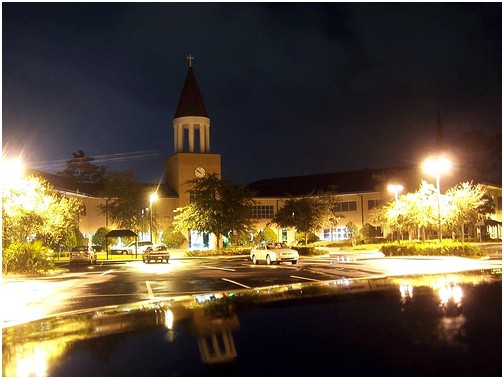
Is it something in the water? As of late, a string of pastors, some of whom are friends, have left their churches to teach or lead schools. Let’s see—Doug Webster, senior pastor of First Pres in San Diego went to teach at Beeson Divinity School, Mark Labberton, senior pastor of First Pres in Berkley is now on faculty at Fuller. Phillip Ryken, left Tenth Pres in Philadelphia to become president at Wheaton. Jim Belcher, author of Deep Church, is leaving his church to write. No doubt there are more than come to my mind this very second.
What is going on? It’s not that we are sick of the church, I can guarantee that. The truth is, everyone of these individuals are pastor-scholars. They are pastors with Ph.D’s. Such people tend to move back and forth between these two worlds. In fact, sometimes they do not feel fully comfortable in either world—they are a little too academic for the church, and they are a little too popular among academics. But that is precisely why they are needed in both worlds.
The seminary needs churchmen. The church needs doctors and theologians.
Which brings me to my own transition. Next month I begin my new position at Reformed Theological Seminary in Orlando as President and Professor of Church History. Now why would I do a thing like that? Especially after some one said, “You know Don, you could finish out your ministry at your current church if you want to.”
There are lots of reasons why. On the one hand, I sense that I have completed the assignment God gave me at Cherry Creek Presbyterian Church, which was to bring the church to health, and position it for new growth and outreach.
But why a seminary in general and RTS in particular? Again, lots of reasons. First of all, there is my gifting and calling. I am a pastor-teacher by gifting. Two providential tracks in my life are pastoring and serving in education. They have taken me on a student journey that spans Moody, Lawrence University, Regent College, Trinity, and Oxford. God has blessed me with post-graduate educational assignments at John Stott Ministries and the Langham Partnership with international students, at Denver Seminary with graduate students, and at Colorado Christian University as a trustee.
Second, my passion is, not only to become, but to help make disciples who are whole hearted, well formed, and kingdom ready to be used by God in our world. The prospect of training and equipping pastors and leaders for the global church of the twenty-first century truly excites me.
Third, there is the strategic role of the seminary. It is quite simple—as pastors go, so go the churches, as churches go, so goes the culture. Who shapes pastors? Seminaries. The next generation of church leaders will either be made or marred in the seminary. The need for the church to be “on the top of its game” at this particular time is more urgent than ever.
Fourth, after serving 22 years as a pastor, I look forward to stepping back and reflecting on ministry and getting an aerial view of the church. I will be serving churches and will take on the role of a pastor to pastors for a while.
Fifth, I resonate with RTS. As long as I’ve known about this school, I’ve been impressed by its commitment to the truthfulness of the Bible, to proclaiming the gospel, to be missional, and to be winsomely and graciously reformed. Evangelicalism in America is in danger of losing its identity. It needs the good influence and confessional strength of a school like RTS. And I believe we can be a blessing to the evangelical world, as well as to the wider culture.
Sixth, I am led to believe that my gift mix is particularly suited to serving at RTS at this time. My gifts involve preaching, teaching, encouraging and writing on the one hand, and leading, casting vision, and building up institutions, on the other hand.
Seventh, there is the matter of my own heritage. I watched my dad make the transition from pastoring to leading a school and was blessed to serve with him for a short time as an assistant in his long ministry at Moody Bible Institute as president and chancellor.
Eighth, I look forward to the opportunities of not only working with a great team of people at RTS, but also to having a wider ministry in the US and abroad. The prospect of being a president-professor, yet being able to preach and encourage pastors and churches appeals to me at this point in my life.
Ultimately, for me, and these other great guys who have made the jump to the academy for a spell, we do it with a deep love for the church, and with the same hope that Paul had in his heart when he said, “Now I want you to know brethren, that my circumstances have turned out for the greater progress of the gospel,” (Philippians 1.12). This is what we all want—the greater progress of the gospel. And it just so happens that there are many ways to work for this. As we are open to the Lord’s guidance, he still calls us to the adventure of following him wherever he leads and to using our gifts to magnify his holy name.
